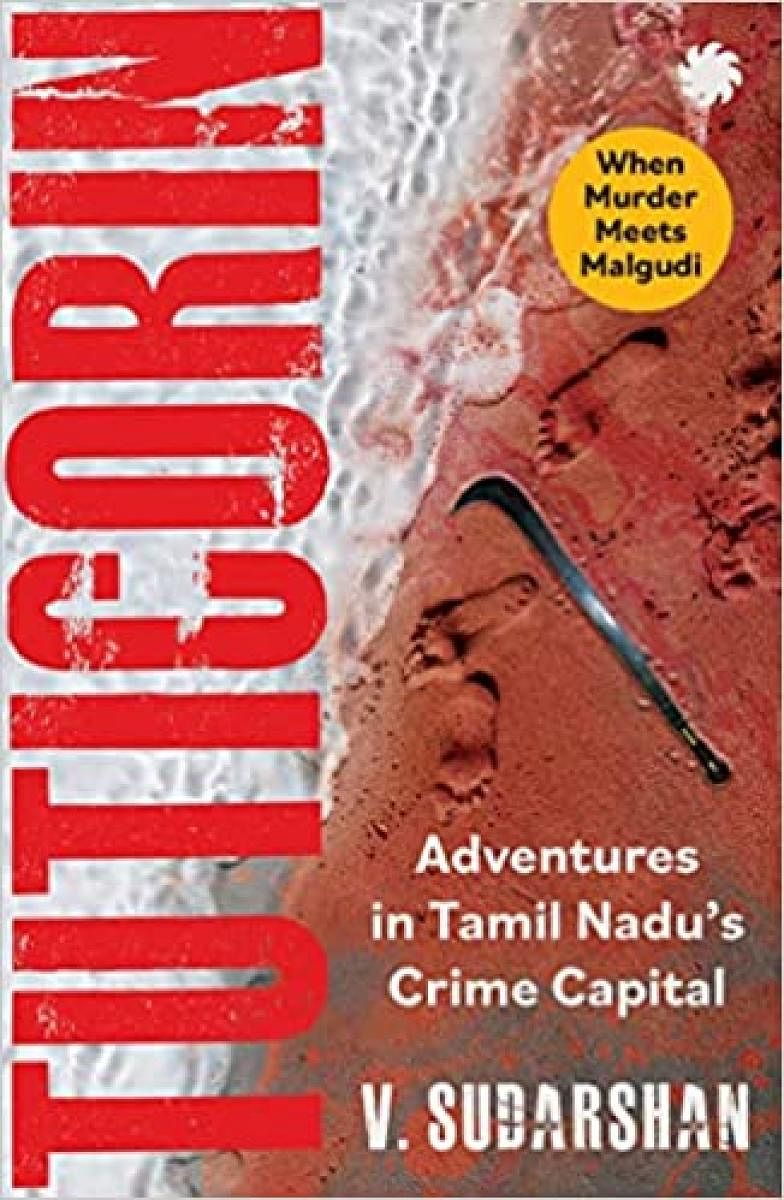
Indian police stories are often narratives of cheats, frauds, murders, thefts, extortions, rapes, flesh trade, bootlegging, etc., which tell the sorry tale of the socio-economic and political quagmire of this country. The stories always read like suspense thrillers. Though ‘Tuticorin’ appears to be no different from the other typical police stories, there are many marked features that distinguish it from the others in the genre.
An extremely readable book, here is a lived story of a police officer who had to face all the turmoils and the exigencies of the Tamil Nadu police department.
The simplicity of the language used, akin to the simplicity of the protagonist, though problematic sometimes, offers comfortable reading. Even structurally, the narrative is simple with each chapter having an autonomy of its own.
The characters are a mixture of good, bad and ugly. They ooze out a certain warmth and intimacy that make them real human beings in the real locale called Tuticorin aka Thoothukodi in Tamil Nadu.
Actually, it could be said that this narrative is “twice-born”. Anoop Jaiswal, an IPS officer, well known for his impeccable character, dignity, sincerity, honesty and empathy for the downtrodden, always at loggerheads with the establishment, the one who acquires a celebrity status in the bureaucratic and political circles of Tamil Nadu, narrates his experiences to V Sudarshan, a well-known journalist. The latter in turn reconstructs the former’s experiences.
Though this cannot be called either a novel or a novella or a collection of short stories, the narrative offers a memorable experience of reading good realistic fiction.
The subtle sense of humour that pervades throughout the book is simply absorbing. The narrative consists of individual episodes, though not well connected, in the life of a proactive policeman. The IPS officer chooses his profession out of reluctance than out of his own personal choice.
Interestingly, the reluctant IPS officer has to fight for over two years in the Supreme Court to be appointed to the police service. But, the commitment he exhibits, in spite of all the ill-treatment meted out to him, is something remarkable.
The sagas depicted here are of the underprivileged who get caught by swindlers, of murderers with humane qualities, of forced prostitution, of the affluent who inflict misery on the less-privileged to quench their thirst for money, of caste wars, of reformation within the police department, etc.
The nexus between the political establishment and the police is also subtly but effectively brought out in the stories. The extreme love, admiration and gratitude of the people towards him for all the help he rendered to them, is heartwarming.
The police officer is also portrayed as a family man with an endearing and helpful wife and two children, and as an encouraging father.
The writer has chosen to write this book in Tamil-English, not in English-English and this adds to the flavour of the book.
In spite of all the wonderful things said about the man and his deeds as a humane police officer, what is conspicuously absent is the abstract nature of his conflict while being an honest and pro-human officer. There are places in the narrative where issues like legal versus illegal and ethical versus unethical are taken up, but unfortunately, they are not considered with the seriousness they demand.
They appear to be too superficial. One would expect the man, who coincidentally firmly believes in astrology, and is given to such humane actions, to be deeply disturbed internally while confronting the external world.
Perhaps, this is the price one has to pay if one wants to write like ‘Malgudi Days’ (which is clearly stated on the cover page). While simplicity in a narrative is a virtue, as in R K Narayan’s work, an abstraction of human conflicts is far more important in a narrative like this.